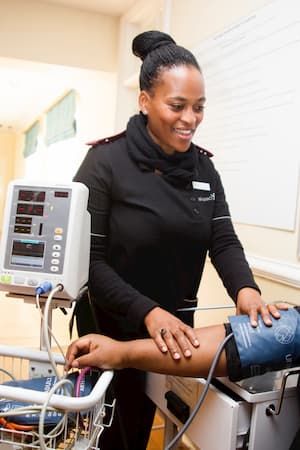
Preparing for the True Costs of Alzheimer’s Care
By Julia Merrill
Alzheimer’s Care: What Are The Costs?
Caring for a loved one with Alzheimer’s is not an easy task. It takes love, patience, and careful financial planning to provide the care Alzheimer’s patients need. If you or a loved one has been diagnosed or is at risk for Alzheimer’s, here are some ways you can anticipate the costs and requirements of medical and long-term care.
Make the Most of Medicare Coverage

If you or your loved one relies on Medicare for their insurance coverage, it’s important to know what elements of Alzheimer’s care will be covered. Much of the care needed by Alzheimer’s patients is in the form of assistance with daily tasks. This kind of care, whether it is provided at home or in a nursing home, is considered custodial care and will not be covered by Medicare. Some forms of Medicaid may help you pay for Alzheimer’s care costs, but even that is severely limited. Medicare Advantage plans could help you cover more of the costs associated with medical needs, freeing up cash for other forms of care. Medicare Advantage Plans are offered by private insurers like Humana and are an alternative way to get your Original Medicare Part A and Part B benefits, while Medicare Supplement plans are a type of insurance coverage that helps you pay for your Medicare Part A and Part B copayments, deductibles, and other out-of-pocket costs.
Decide What Kind of Care Is Best

There are quite a few ways to care for seniors who are living with Alzheimer’s. For patients in the early stages, you may simply need a little help with daily tasks around your home. Home health care is a good option for seniors who would like to remain in their own home, and with innovative technology, home healthcare is becoming more efficient than ever. Receiving care in home care can drastically reduce costs for patients who are a good fit, and aging in place has been shown to be beneficial for many seniors. You may also need to look into more consistent care, from a nursing home or assisted living option, to provide more safety and security. This round-the-clock care can be more expensive, but you may be able to offset costs with benefits from the VA (if you are a veteran) or other funding options.
Make Modifications to a Home

Safety is a primary concern for anyone living with or caring for a patient with Alzheimer’s. If care is to be given in a home, it’s important to think about making modifications to prevent accidents and make the provision of care easier. General safety measures include locking up potentially dangerous appliances, utensils, or cleaners to prevent the patient from accessing these items accidentally. Falls are a common hazard for seniors who are living with Alzheimer’s, so make upgrades around your home to keep falls from happening. You can have a tub replaced with a walk-in shower and install grab bars around slippery surfaces. Non-skids mat are also good to have in the bathroom, as well as other areas. You can use a home equity loan to pay for modifications or look into grants and funding for your accessibility upgrades.
Get Legal Paperwork in Order

Caring for a person with Alzheimer’s means making most of their medical and financial decisions. In order to grant this authority to a loved one or care provider, you need to consult with a legal professional to have a power of attorney drafted. Make sure the appropriate forms are filled out correctly and that it is clear what kind of decisions can be made. While you are working with an attorney, it is also a good idea to make sure any estate plans or wills are in good order. It is never pleasant to think about these end-of-life details, but doing so is essential for preventing additional legal costs and issues in the future.
Alzheimer’s takes so much away from individuals, families, and caregivers. By planning for the costs associated with Alzheimer’s care, you can prevent it from taking away your family’s financial security and help protect their future.
Photo by Marisa Howenstine on Unsplash
Julia Merrill is a retired board-certified nurse practitioner. Her experiences have prompted her to find means to bridge the gap between those who receive care and those who provide it through her new blog befirendyourdoc.org.




